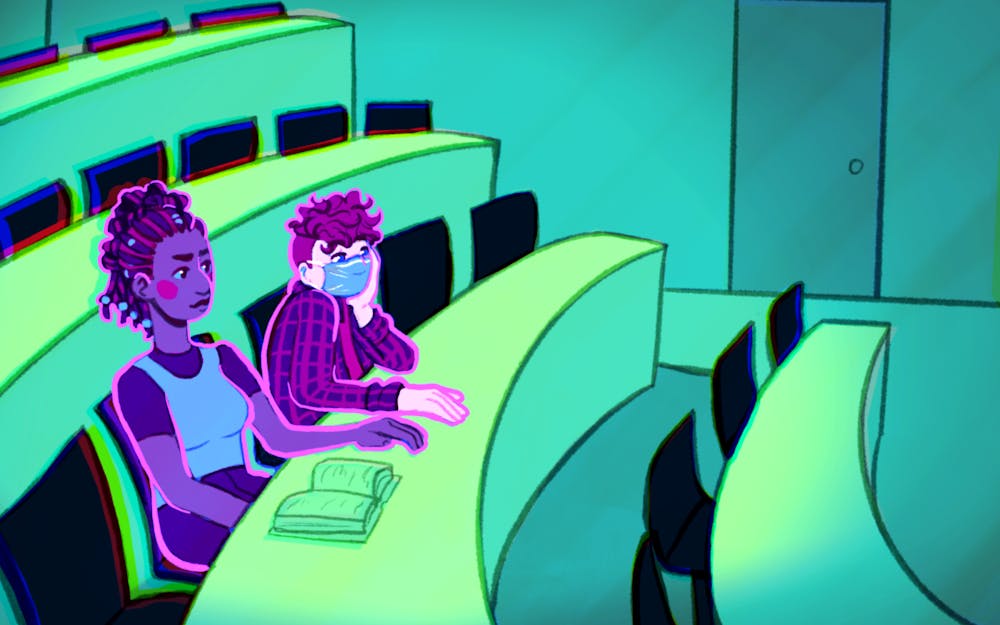Next time you’re sitting in a massive lecture hall, take a look around you. Hundreds of students crammed shoulder to shoulder, all fighting for what little wiggle room they can get. Now notice how many students are wearing masks, and, more importantly, how many aren’t.
For a lot of people, the pandemic seems to be over. The country hasn’t experienced huge spikes in cases since January. But in places like college campuses, viruses can travel through student populations extremely easily. What may seem like a nearly -forgotten pandemic today might be sending you to the clinic tomorrow.
[Related: Little change in COVID cases, 28 new monkeypox cases this week]
Yes, wearing a mask is culturally passé at this point, but it can seriously affect your chances of staying healthy. In a July 2022 study, the probability of contracting COVID-19 for those who don’t wear masks was 52 percent. For those who do, it was only 7 percent.
I know we’re all sick of wearing masks. We’ve had years of our lives ripped away by COVID-19. It’s tempting to push the months of missed opportunities and loneliness out of our minds — but ignoring the problem won’t make it go away.
According to Centers for Disease Control and Prevention reports, the United States experienced approximately 100,000 cases per day during August. Though the numbers are dropping as we enter September, students still retain a significant risk of contracting COVID-19.
[Related: OPINION: Masks need to become a facet of American culture, not an adversary to it]
It can be awkward walking into a lecture hall or a discussion section and seeing you’re the only one wearing a mask. Trust me — during my senior year, I was one of about two dozen people at my high school who wore a mask daily.
It’s tough getting through the social pressure, but it’s even more of a reason to wear a mask. If no one else is doing so, there’s nothing protecting you from catching COVID-19 except luck.
If you don’t want to wear a mask, that’s your choice, but recognize why other people do. Your classmates and teachers have a lot of reasons to want to keep themselves safe. They may be immunocompromised, or they may have a loved one who is. Or they might simply not want to get sick — and that’s enough.
Danny William (they/them) is a freshman studying media.




